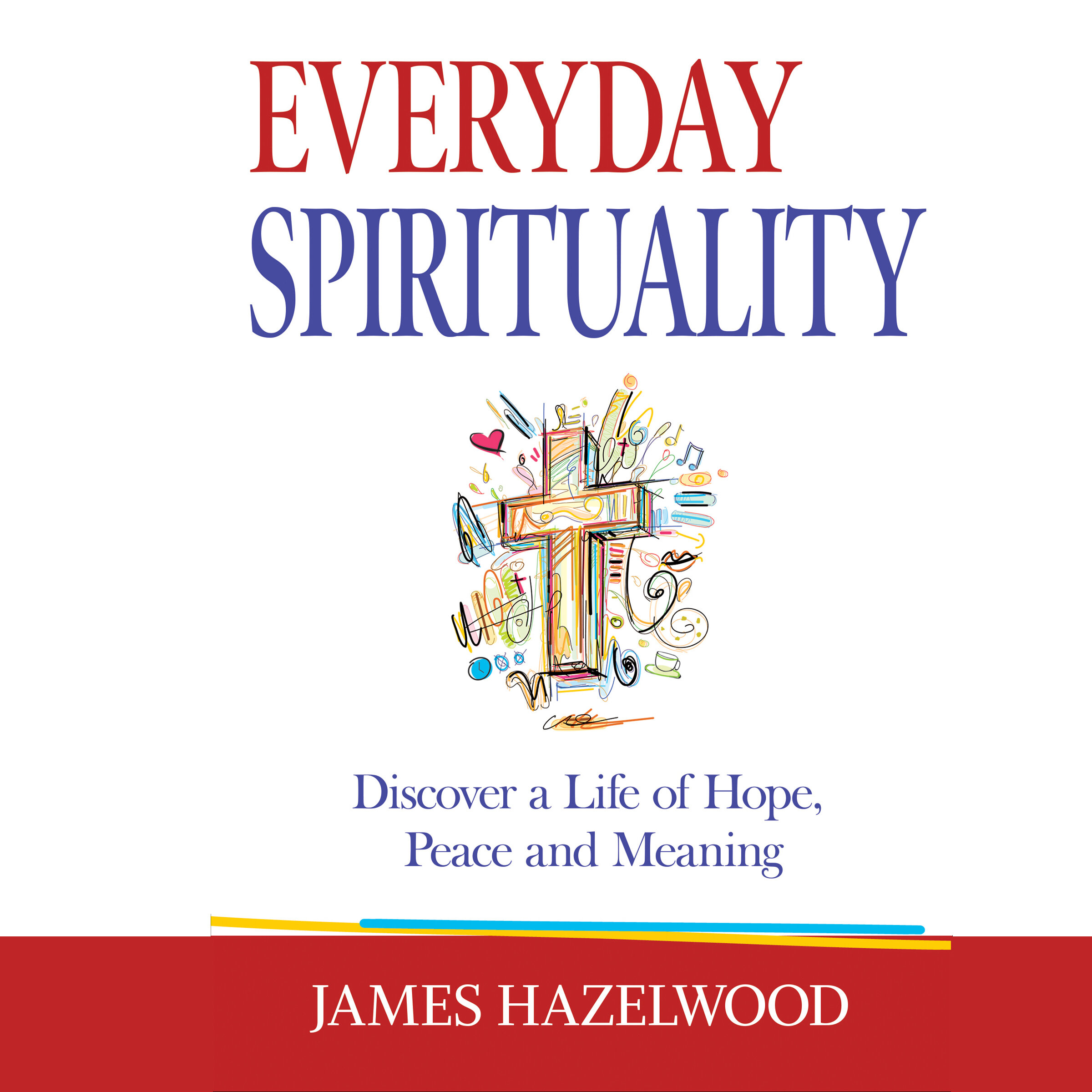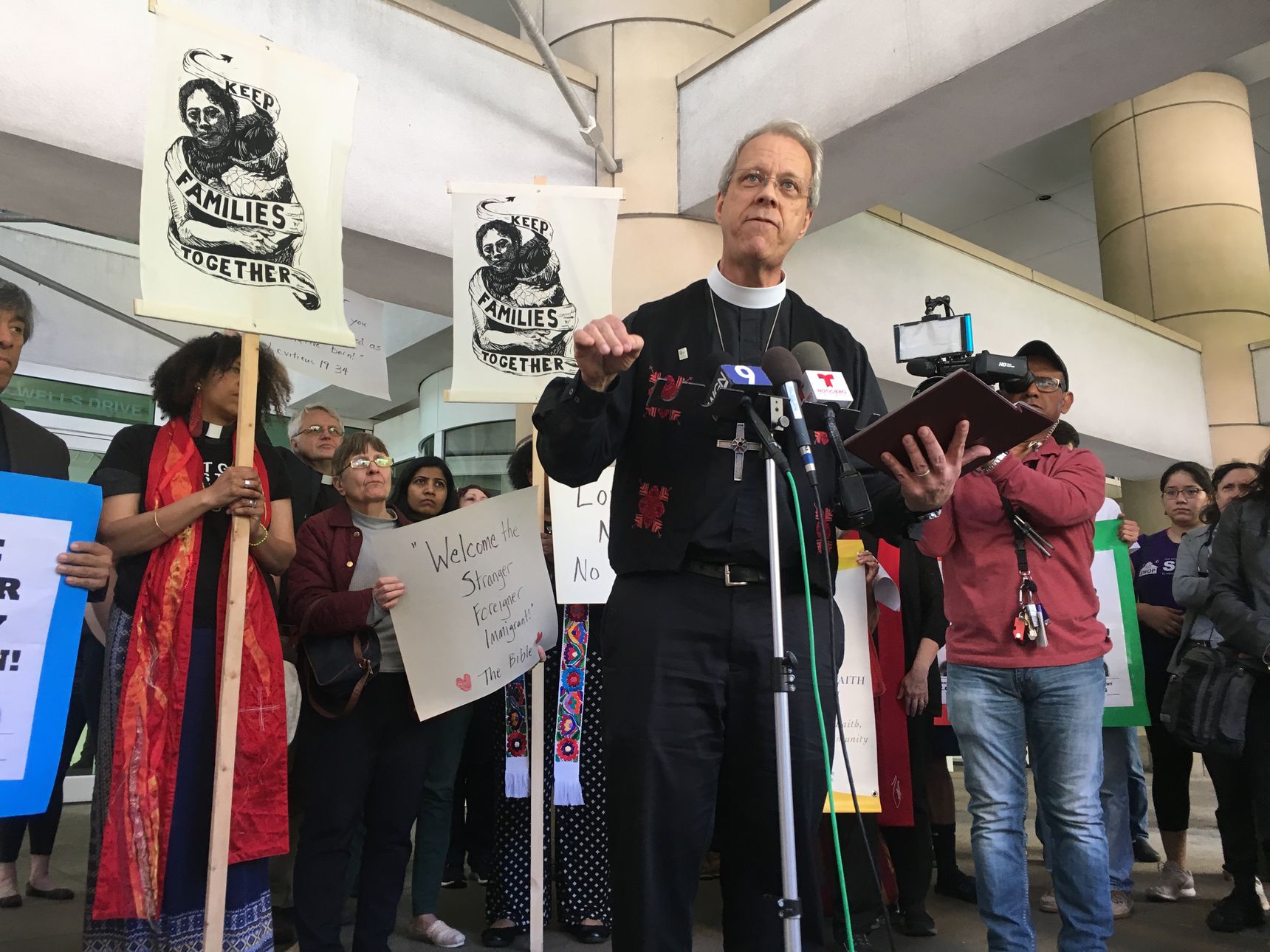Guest Post - Everyday Spirituality Story of Eric Mull
Rev. Eric D. Mull, Redeemer Lutheran Church in Bangor, Maine.
There is one word that defines my life and that is grace. The grace of acceptance. The grace that defies shame.
I grew up in rural western Pennsylvania. I respected my dad. My dad was a good man, he was a good provider for our family. He put five children through college. He played baseball with his sons. He built us a three-story split-level tree house. He built a damn in the creek so that we could go swimming. He is no longer with us, and I do miss him.
But my father’s voice was not the voice of love it was the voice of rejection, the voice of shame, the voice of condemnation and fear. My father was a tortured soul. He just didn’t have the capacity to love me and I realized later he just could not accept his gay son. He loved my brother Roger, but he could not embrace me as his own. He would go out of his way to remind me that I was not acceptable, that Roger was his favorite son. His belittling words throughout my childhood literally shriveled up my soul. I approached the world plagued by self-doubt and fear. I belonged nowhere. The voice of condemnation and fear controlled my life for years.
I was baptized and confirmed Lutheran (ALC) but joined a conservative evangelical church in my late teens. I am a recovering evangelical. Turns out I was exchanging a punitive father for a punitive God. I served as Pastor of an evangelical church for six years while hiding deep in the closet. I left the church, because I repeatedly heard voices of shame, “you’re a screw up,” “you’re not enough,” and “you’re an abomination.” I left the ministry in good standing, but in a desperate state of bewilderment. I had nothing to offer the people. I felt God would never accept me as I am, so how could I preach the gospel if I didn’t believe it myself.
It wasn’t until my mid-thirties that I heard what Henri Nouwen calls the inner voice of love that would eventually drown out the voice of fear. I was in my room severely depressed one night. I cried out to God to take my life. I reached for my Bible and it opened to Romans 8:1. “There is therefore now no condemnation for those who are in Christ Jesus.”In a split second my heart shifted from total despair to jubilant joy. God did not condemn me. God loved me as I am; a gay, broken, inadequate man. I literally felt my shriveled spirit expand with confidence and assurance. Paul Tillich called this grace “the courage to be in spite of being unacceptable.” For me that meant the courage to be in spite of being gay.
I decided I wanted to go back to church, but I wasn’t sure where to go. I could not go back to a church that forced me back into the closet, so I went back to the church of my baptism, a small Lutheran Church in Brooklyn. The preaching was bad, the music was worse, but I found peace at the Table. For months I received the body and blood with tears; tears of joy mixed with fear and trembling. Christ’s love was present there. He whispered, “forgive as I have forgiven you.”
Forgive! How could I forgive the man who nearly destroyed my life? I had not spoken to him in years. I hated him and he continued to verbally abuse me into my adulthood. I begin to pray for him. For nearly a year I prayed, “Daddy I forgive you. Jesus help me to forgive.” God opened the door to face what seemed to be impossible. My mother had a stroke and I flew to Chicago to see her. My dad was his angry belligerent self. That evening I knew we had to talk. What started as a fight ended up as a reconciliation. I don’t think forgiveness necessarily requires reconciliation. Some abuses are just too great to reconcile. God granted be both forgiveness and reconciliation.
My dad and I talked for three hours. This was more than we talked my entire life. He heard my pain and I listened to his. He apologized for his cruelty and said “I learned as a child that I had to hurt the other guy before they hurt me. I’m sorry I did that to you.” He moaned in a desperate tone, “how can I ever be forgiven.” I said, “God forgives you and I forgive you too. Please dad stop verbally abusing me. He did.
A week later my mother had another massive stroke that put her in a comma. One evening we visited her in the intensive care unit. My dad began to weep over my mom. I was shocked, I never saw him cry before. He emotionally abused her as well. He started confessing his cruelties to her in detail. For the first time I felt massive love for him. I hugged him and said, “daddy I love you.” He said, “I love you too son.” He then gave me a litany of blessings. Every child needs to hear blessings from their father. I heard nothing but critical words my whole life from him. That night it all changed. I literally felt a giant weight roll off my back. My dad and I had a tender relationship for two years before he died. “Forgive us our trespasses as we forgive those who trespass against us.”
This was pure grace. We forgive out of the abundance of God’s mercy. We love because he first loved us. I don’t think I could ever have forgiven my dad, accept that God tenderly embraced me. Lewis Smedes said, “To forgive is to set a prisoner free and discover that the prisoner was you.” I was that prisoner and now I am free.
In 2009 when the ELCA opened their doors to ordain gay Pastors, I left the field of Mental Health and went to Seminary. I am the newly installed Pastor of Redeemer Lutheran Church in Bangor Maine. I take Henri Nouwen’s title for a minister; I am a wounded healer. I have a mystic’s heart and love to companion those who live on the margins; the poor and the poor in spirit. One of my favorite Bible verses is 2 Corinthians 12:9 “My grace is sufficient for you, for power is made perfect in weakness.” So, I will boast all the more gladly of my weaknesses, so that the power of Christ may dwell in me.” Amen






















